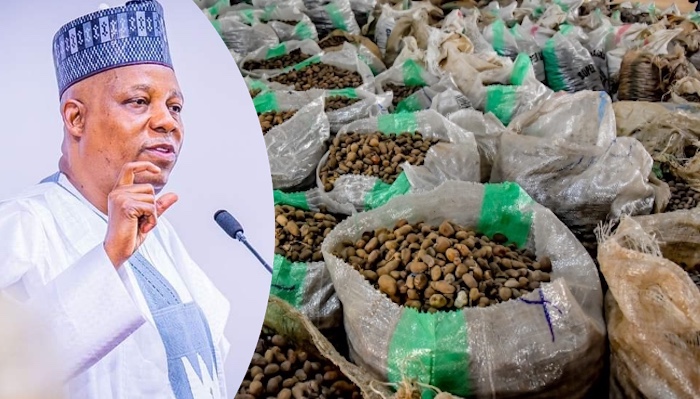President Bola Tinubu has approved a six-month temporary ban on the export of raw shea nuts to boost local processing, curb informal trade, and strengthen Nigeria’s position in the multi-billion-dollar global shea industry.
The ban, announced with immediate effect and subject to review upon expiration, is projected to generate at least $300 million annually in the short term.
Vice President Kashim Shettima, who disclosed the directive at a multi-stakeholder meeting at the State House, Abuja, explained that the measure was designed to secure raw materials for domestic processors and create jobs across the value chain.
According to him, the decision was not punitive but strategic.
“This is not an anti-trade policy but a pro-value addition policy designed to secure raw materials for our processing factories and enabling industries run at full capacity, thereby boosting rural income and jobs for our people,” he said.
Shettima added: “This decision will transform Nigeria from an exporter of raw shea nut to a global supplier of refined shea butter, oil, and other derivatives. It is about industrialisation, rural transformation, gender empowerment, and expanding Nigeria’s global trade footprint.
“Nigeria produces nearly 40 per cent of the global shea product, yet we account for only 1 per cent of the market share of $6.5 billion. This is unacceptable. We are projected to earn about $300 million annually in the short term, and by 2027, there will be a 10-fold increase. This is our target.”
The Vice President stressed that the directive was a collective decision taken with sub-nationals and the Federal Government.
“Government is not closing doors; we are opening opportunities. Mr President is currently in Brazil, and both countries have agreed to prioritise access for Nigerian shea butter and oil into the Brazilian market. This process will be completed within the next three months,” he added.
Highlighting the gender dimension of the initiative, Shettima said: “By protecting the shea industry, we are protecting livelihoods, dignity and opportunity for millions of our women. We are not closing doors, we are opening better ones. Today, we plant the seeds of an industry that will yield fruit for decades to come — for our women, for our economy, and for Nigeria’s place in global trade.”
Minister of Agriculture and Food Security, Senator Abubakar Kyari, underscored the urgency of the measure, lamenting that despite producing nearly 40 per cent of the world’s shea nuts, Nigeria captures less than 1 per cent of the global shea economy valued at $6.5 billion.
“Nigeria produces an estimated 350,000 metric tonnes of shea annually across 30 states, with the potential to reach nearly 900,000 metric tonnes. Yet our share of the $6.5-billion global market is less than one per cent,” Kyari said.
He disclosed that a Rapid Assessment of the Shea Value Chain conducted by the Presidential Food Systems Coordinating Unit (PFSCU), the Ministry of Industry, Trade and Investment, and the Ministry of Agriculture and Food Security provided the evidence that shaped the presidential directive.
Kyari said the assessment revealed that “over 90,000 metric tonnes of raw shea are lost each year in informal cross-border trade, even as Nigeria’s processors operate at only 35 to 50 per cent capacity despite a national installed capacity of 160,000 metric tonnes.”
He added: “While regional neighbours such as Ghana, Burkina Faso, Mali, and Togo have already imposed restrictions to protect their industries, Nigeria was left as the outlier and a hotspot for opportunistic and unregulated buying.”
Underscoring the potential of the sector, the minister said: “The shea trade could generate more than $300 million annually in the short term and position Nigeria to capture a significant share of the projected $9-billion global market by 2030.
“Shea is one of the few commodities where our country holds both a comparative and absolute advantage. With over five million hectares of wild-growing shea trees, Nigeria has the natural endowment to dominate not only in production but also in value-added processing.”
Kyari emphasised that the policy also aligns with the administration’s women empowerment agenda.
“Ninety per cent of pickers and processors of shea are women. Investment in this value chain directly translates into women’s empowerment, rural job creation, and sustainable livelihoods,” he said.
He warned that without the corrective action taken by President Tinubu, Nigeria risked “becoming a raw depot for opportunistic and illicit buyers, undermining processors’ capacities, disempowering rural women, and forfeiting billions in potential export revenues.”
Deji Elumoye
Follow us on:








